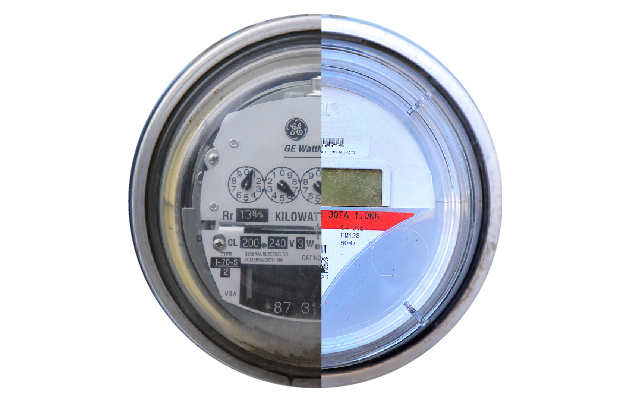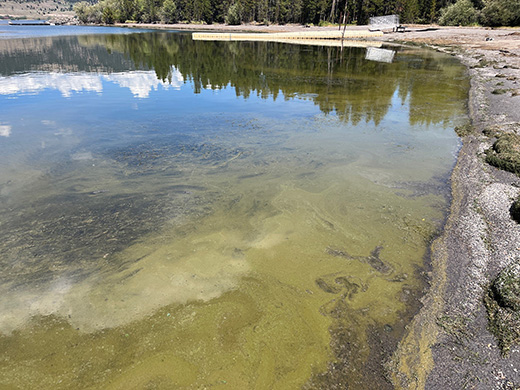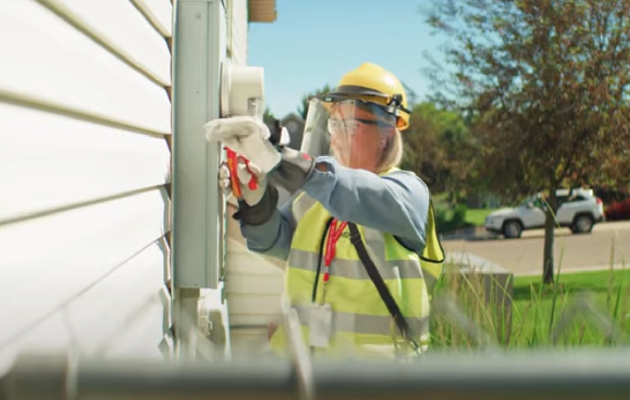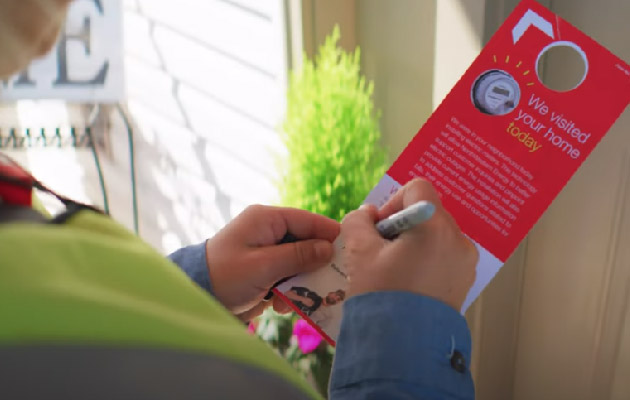Montana Meter Upgrade
NorthWestern Energy will install 590,000 new electric meters and gas modules in Montana.
- This technology upgrade will allow two-way communication between NorthWestern Energy and its meters on customer homes and businesses.
- In most cases, the system will notify NorthWestern Energy of an outage.
- Crews can restore service faster.
- Current energy use information is available for customer questions about bills, energy use and opportunities for energy savings
- System voltage information identifies problems before those problems cause outages.
Montana Digital Meter Upgrade
Moving Toward a Sustainable Energy Future

Moving Toward a Sustainable Energy Future
Advanced Meter FAQs
What is the advanced meter project timeline in Montana?
NorthWestern Energy began installation in Montana in 2021. Here is a list of approximate dates for the Montana Meter Upgrade project by area:
- Missoula Division: completed August 2022
- Butte Division: completed June 2022
- Bozeman Division: completed May 2024
- Billings Division: completed October 2024
- Lewistown District: completed October 2024
- Havre District: completed November 2024
- Helena Division: June 2024 – May 2025
- Great Falls Division: August 2024 – May 2025
Who will change my meter?
NorthWestern Energy contracted with Tru-Check to install the new digital meters, the same company that installed the first generation, one-way communication digital meters in 1998 that are in use today.
Tru-Check technicians will wear apparel with the Tru-Check logo and will carry a NorthWestern Energy contractor identification badge.
Will I have to pay for the meter?
When will the meters be installed and do I need to be home?
Most of the installations will occur Monday through Friday during business hours, though there will be cases when evening or weekend installations may be necessary. Customers don't need to be home.
A door hanger will let residents know their upgrade was successful. If the technician cannot perform the upgrade, a door hanger will be left with instructions to call to make an appointment.
If you are both an electric and natural gas NorthWestern Energy customer, the new electric meter will be installed first and the new gas module will be installed during a follow-up visit to your home or business in about eight weeks.
What happens to the meter on my home or business now?
Are radio frequency (RF) emissions coming from the meters and modules?
Yes. The Federal Communications Commission (FCC) regulates the safety limits for all RF emissions, and smart meter and module emissions make up a small portion of the limit. The RF emissions of the one-way communication meters in use now and the two-way communication meters that are being installed for this technology upgrade are both approved by the FCC. Radio frequency emissions are also produced by common household devices such as microwaves, baby monitors and TVs.
Is customer information protected?
Yes. Customer privacy and security are NorthWestern Energy priorities. The company’s strict security standards have contributed to protecting the energy grid and customer privacy for years. The meters do not collect, store or transmit any personally identifiable information.
The meters measure total energy and cannot differentiate energy usage by appliance or anything else within a home or business. The transmitted energy use information is encrypted.What if I don’t want an upgraded meter?
Customers who want to keep their existing meters can call NorthWestern at 888-467-2669 or email NorthWesternEnergyMeters@northwestern.com to be added to the bypass list. Customers who previously requested an opt out do not need to contact NorthWestern again to be bypassed and keep their meters.
NorthWestern will be reaching out to customers who received an advanced meter despite their request to opt out. For those who still wish to opt-out, NorthWestern will ensure that the advanced meter is removed and replaced with a meter similar to the one that was there before. Customers will not be charged for this service.
Customers who have questions about the advanced meter opt-out program can contact NorthWestern at 888-467-2669
or the Montana Public Service Commission at 1-800-646-6150 or pschelp@mt.gov.
How do I read my meter?

Harmful algal blooms confirmed on Hebgen Reservoir- advisory issued
Date: Aug 21, 2025
TYPE: News
Bozeman, Mont. – Aug. 21, 2025 – Harmful algal blooms (HABs) are present on Hebgen Reservoir in the Rainbow Point Campground area. Routine monitoring of Hebgen has confirmed the presence of anatoxin-a which poses a risk to people, pets, and livestock.
HABs are caused by blue-green algae that are native to Montana’s freshwater lakes and reservoirs. Not all varieties of blue-green algae are harmful, but some can produce dangerous toxins. Ingestion or prolonged contact with the algal bloom may result in illness, with impacts such as muscle twitching, staggering, convulsions, paralysis, and death.
Children and pets are more likely to ingest HAB infested water.
Toxin exposure can occur in humans from recreational activities where water might be ingested such as swimming, wind surfing, jet skiing, and water skiing. Children and pets are more likely to ingest HAB infested water because they spend most of their time wading in the shallow waters where algae can accumulate, and they have less control over how much water they ingest. Animals and livestock that drink large amounts of contaminated water, and pets that collect scum on their fur and then ingest it by licking, are at high risk of toxin exposure.
Blue-green algal blooms often look like pea soup, grass clippings or green latex paint. The algae are usually suspended in the water or appear as floating mats.
Advisory signs are at public access points in the Rainbow Point Campground area warning the public that toxic algae has been identified in the water in these areas. At this time there are no other identified blooms affecting other areas of the reservoir.
NorthWestern Energy is monitoring the blooms and will provide updates if additional restrictions are implemented for public safety.
Suspect a HAB? When in doubt, stay out. Do not drink, swallow, or swim in water that shows signs of a HAB and be sure to keep kids, pets, and livestock out too. If you suspect a HAB- related illness in a person or animal call Poison Control 1-800-222-1222 and seek medical attention.
Report a suspected HAB at www.hab.mt.gov or call 1-888-849-2938. You may also report a suspected HAB by calling the Gallatin City-County Health Department Environmental Health at 406-582-3120. The Gallatin City-County Health Department has resources for water quality on their website, www.healthygallatin.org.
Follow NorthWestern Energy on Facebook and LinkedIn and Instagram: @NorthWesternEnergy
About NorthWestern Energy (Nasdaq: NWE)
NorthWestern provides electricity and / or natural gas to approximately 842,000 customers in Montana, South Dakota, Nebraska, and Yellowstone National Park. We have generated and distributed electricity in South Dakota and distributed natural gas in South Dakota and Nebraska since 1923 and have generated and distributed electricity and distributed natural gas in Montana since 2002. More information on NorthWestern is available on the company’s website at www.northwesternenergy.com.
Media Contacts:
NorthWestern Energy
Jo Dee Black
866-622-8081
Montana Department of Environmental Quality
Tiffany Lyden
406-444-3576
Gallatin City-County Health Department
Holly Whaley
406-579-4232




